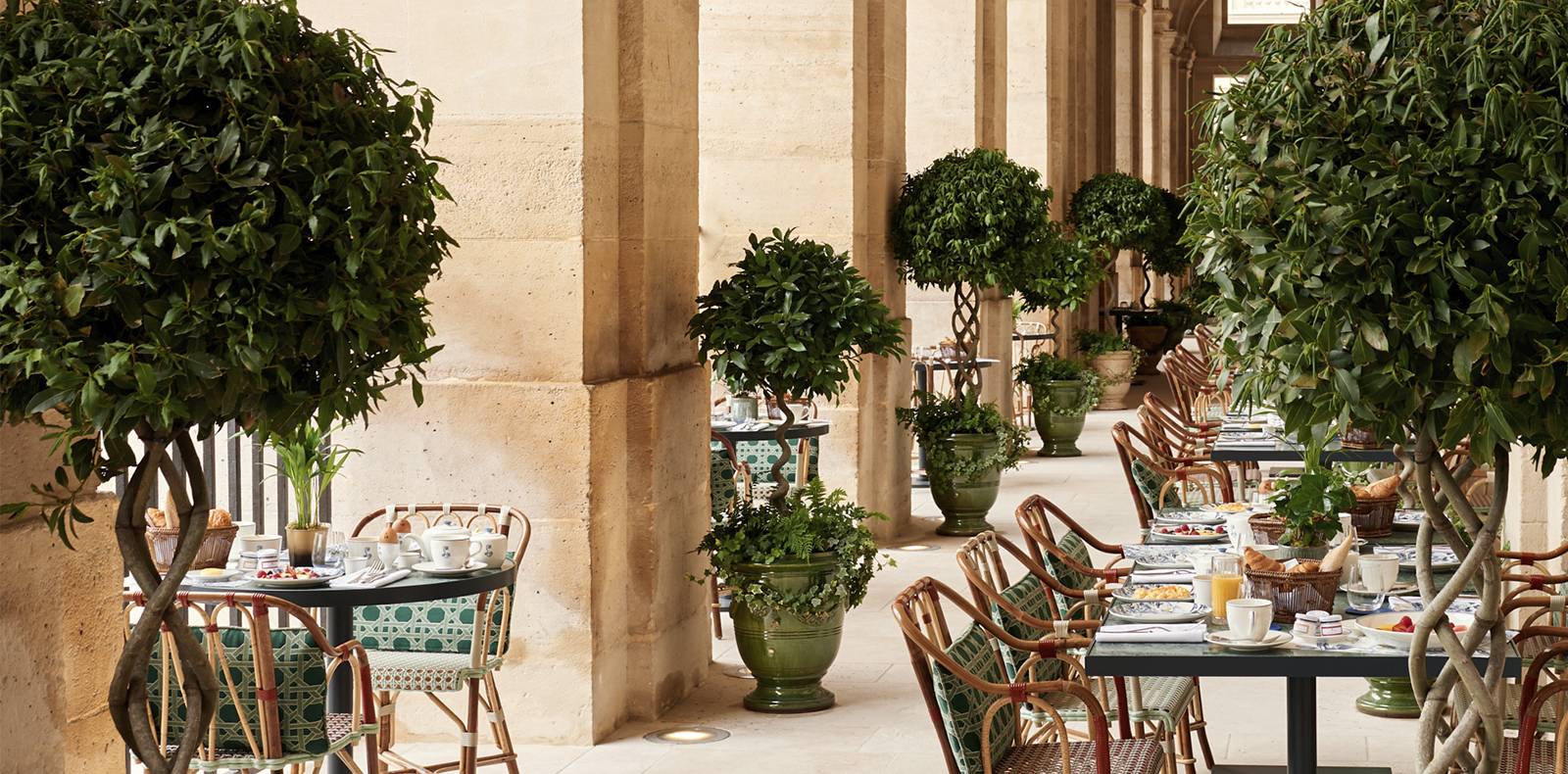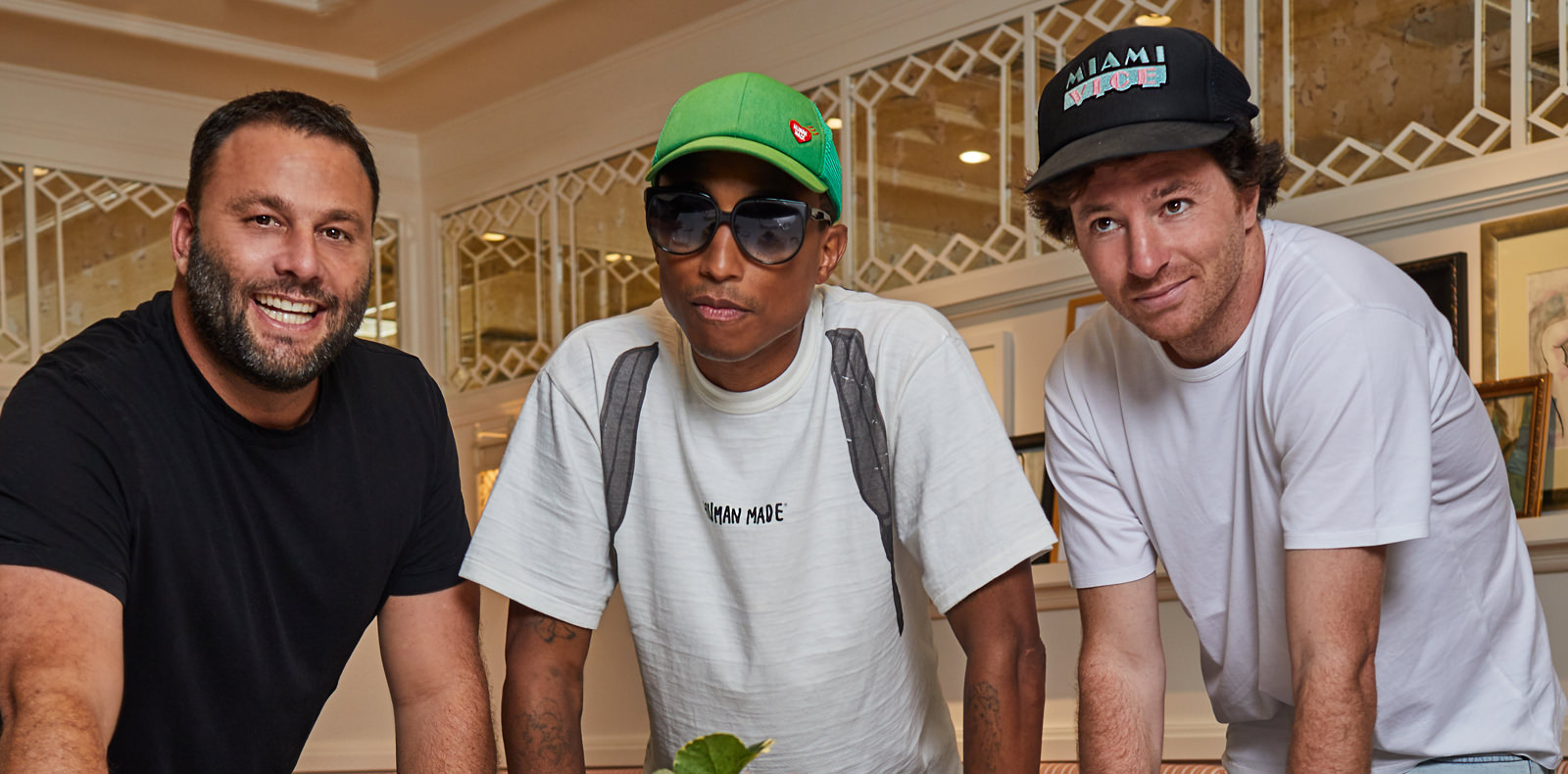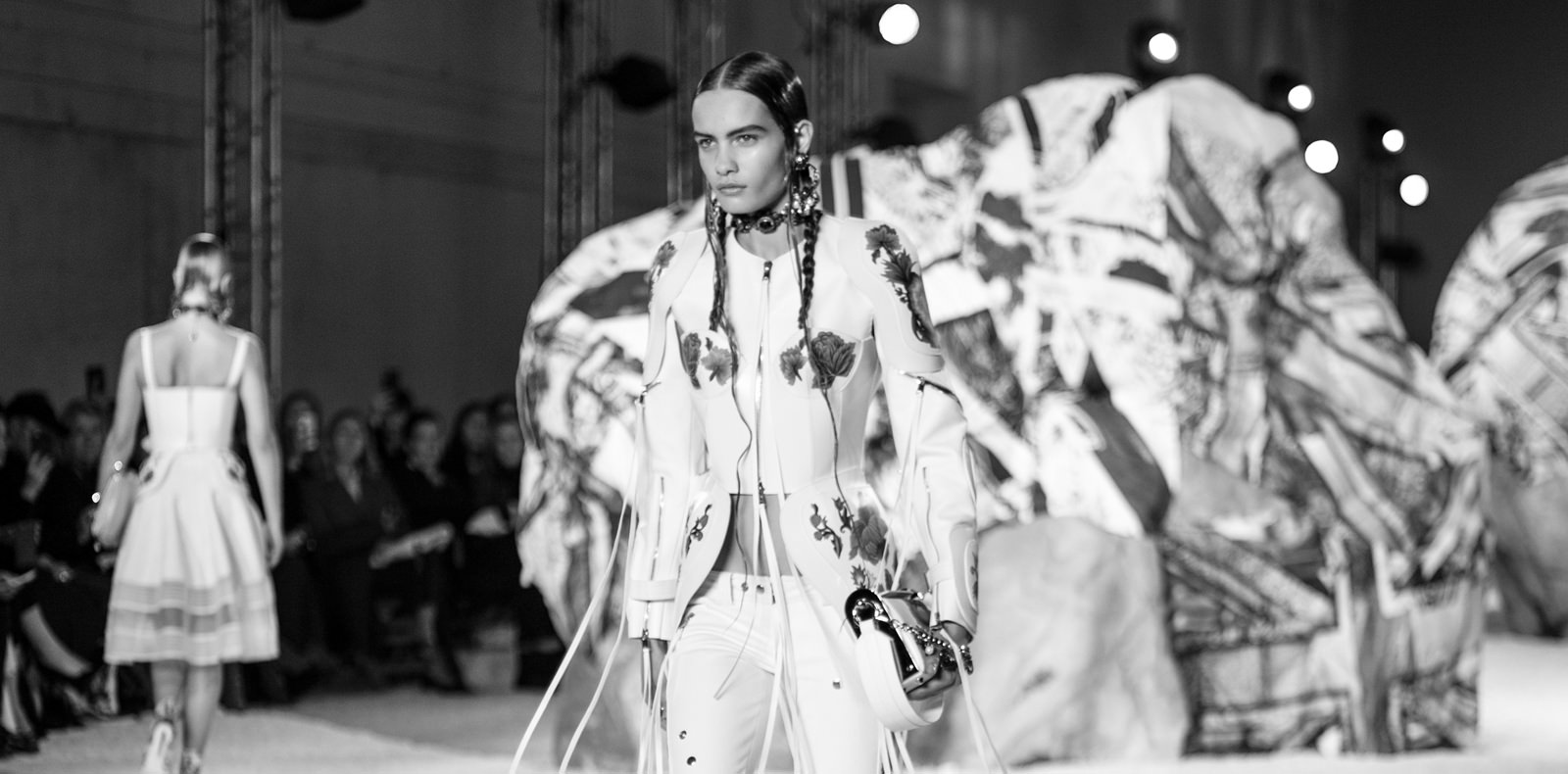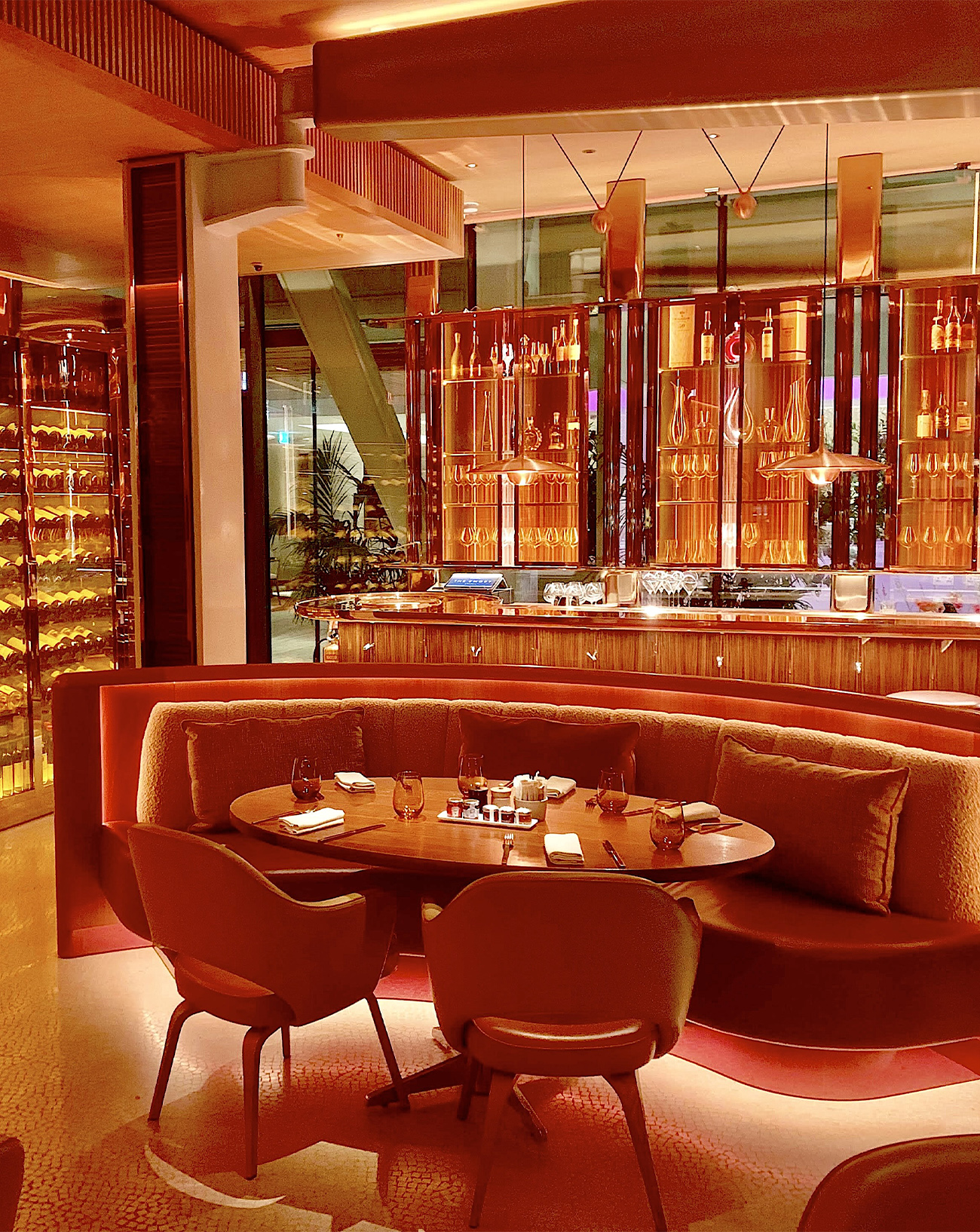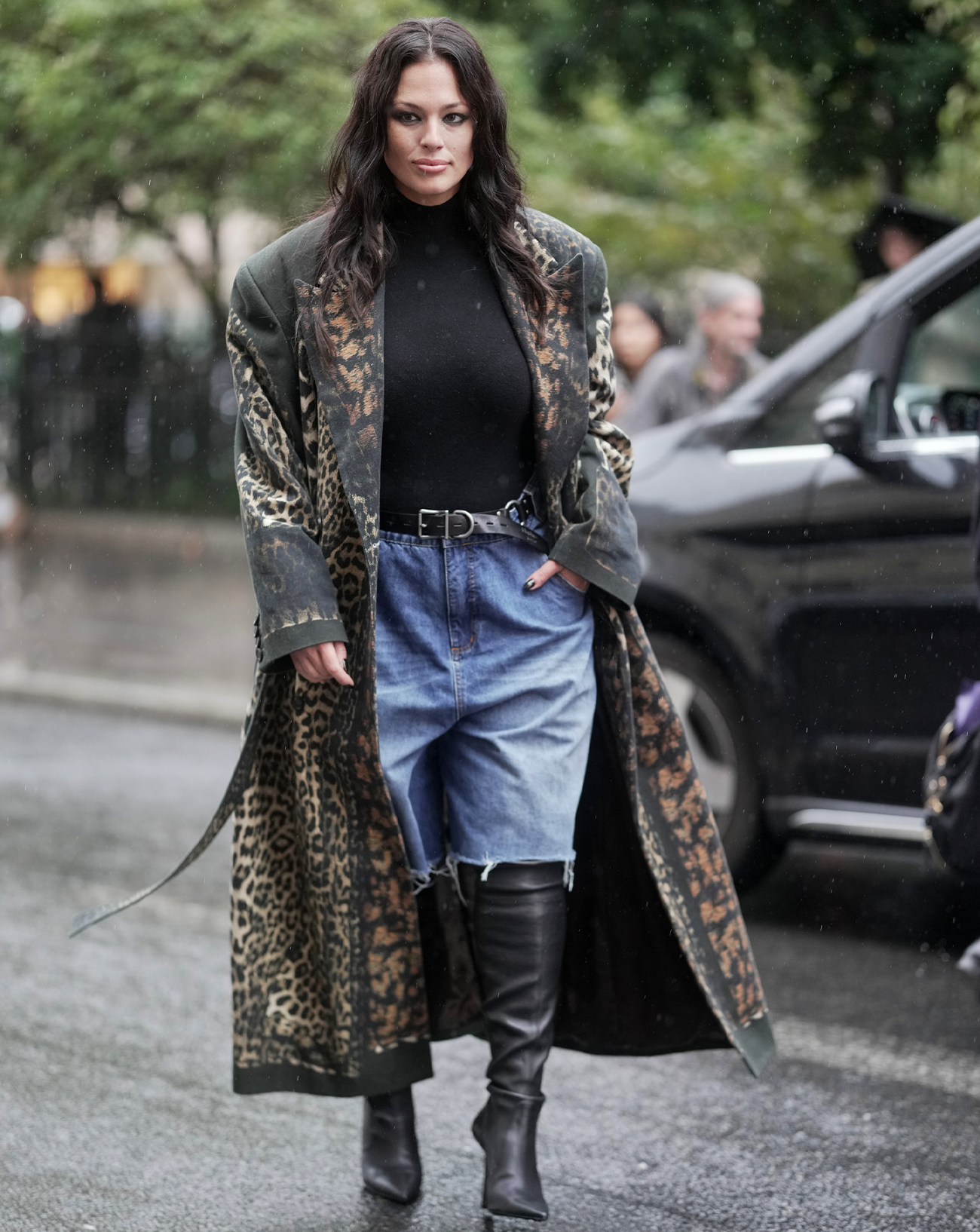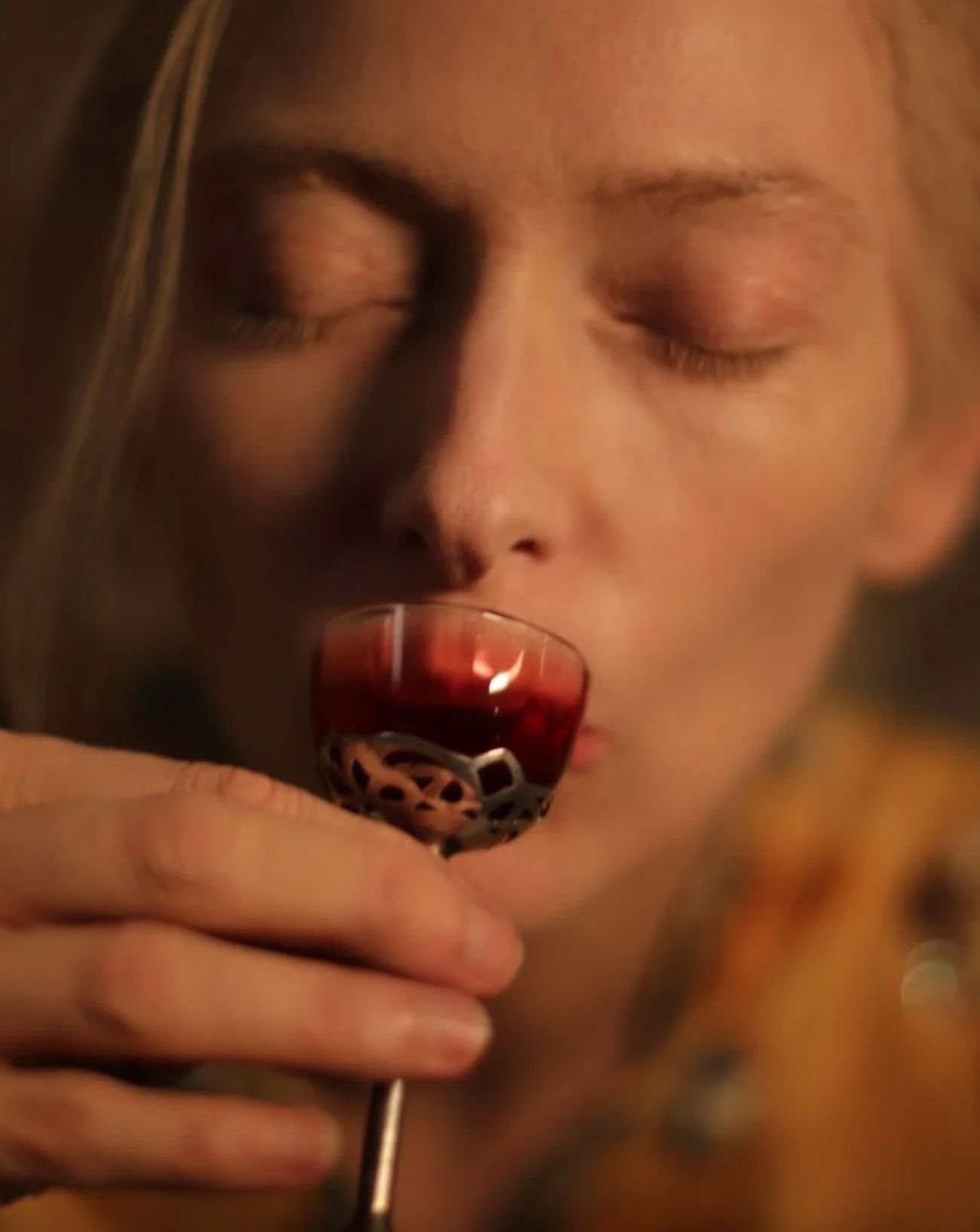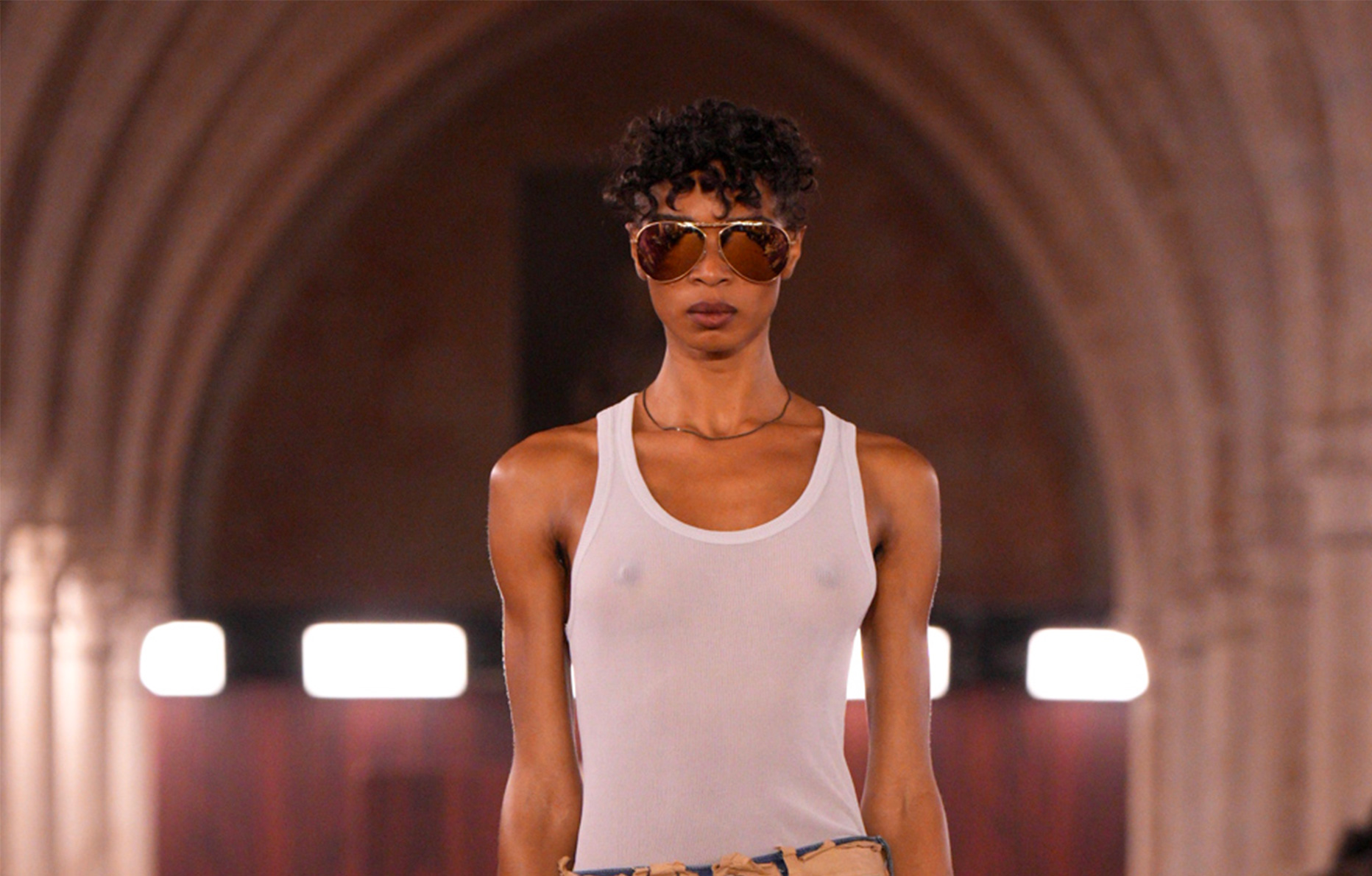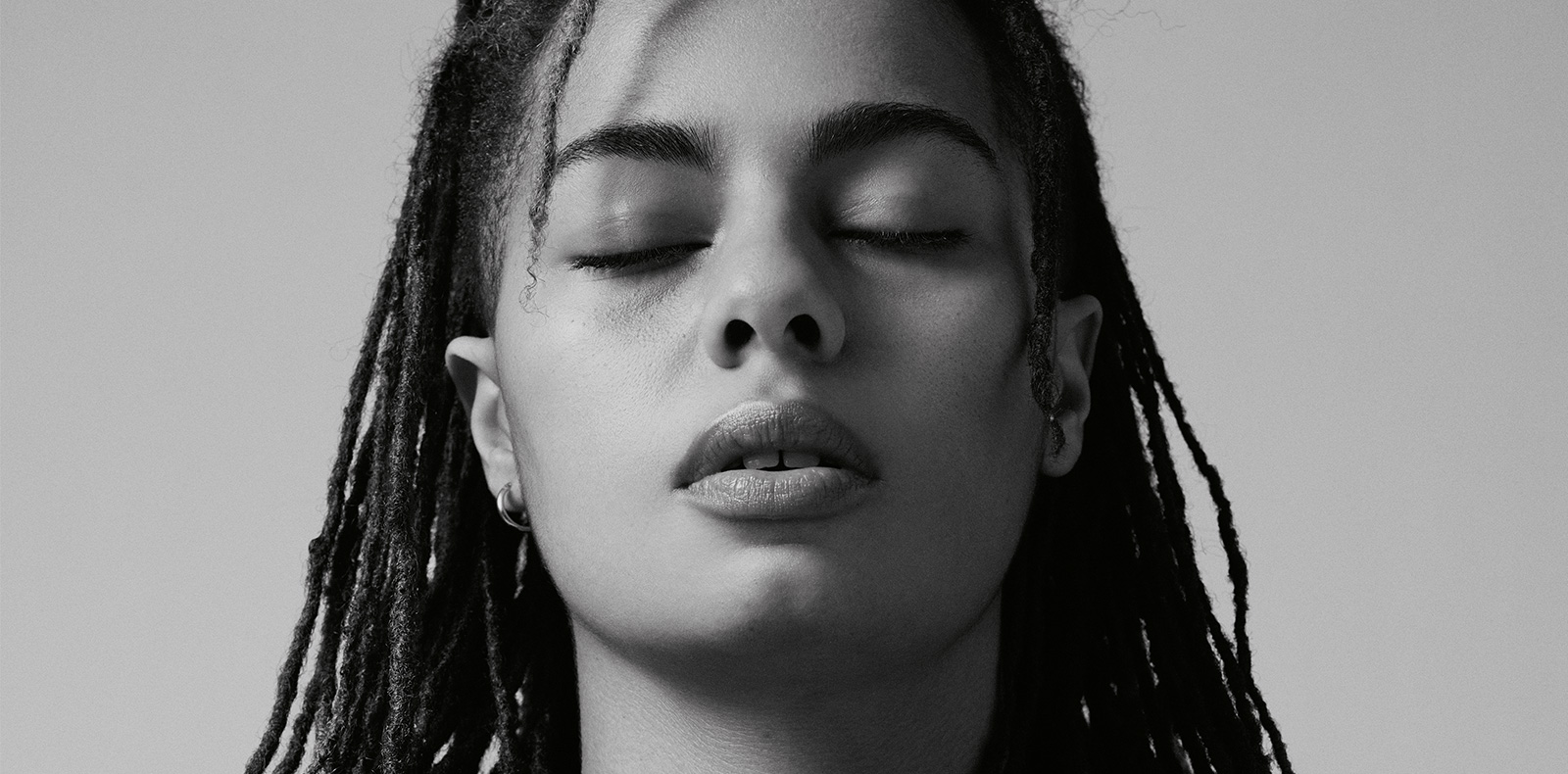
13
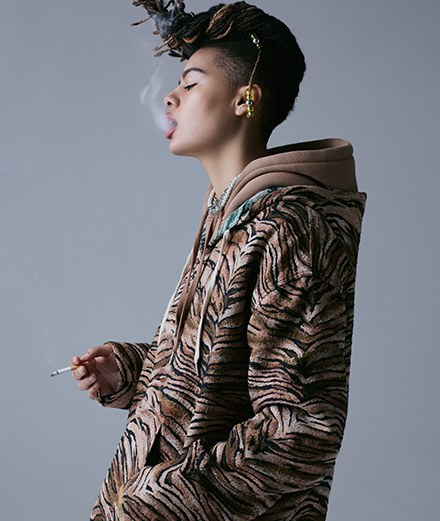
13
Lala &ce : a new form of female rap
Over hazy loops and trippy rhythms, the 26-year-old from Lyon is blazing her own personal trail in the young French scene, setting the precedents for a new female rap. A hymn to sensuality that unfailingly hits its target, her music has earned her enormous popular and critical success.
By Chloé Sarraméa,
Portraits Jean-Baptiste Mondino,
Styling Edem Dossou.
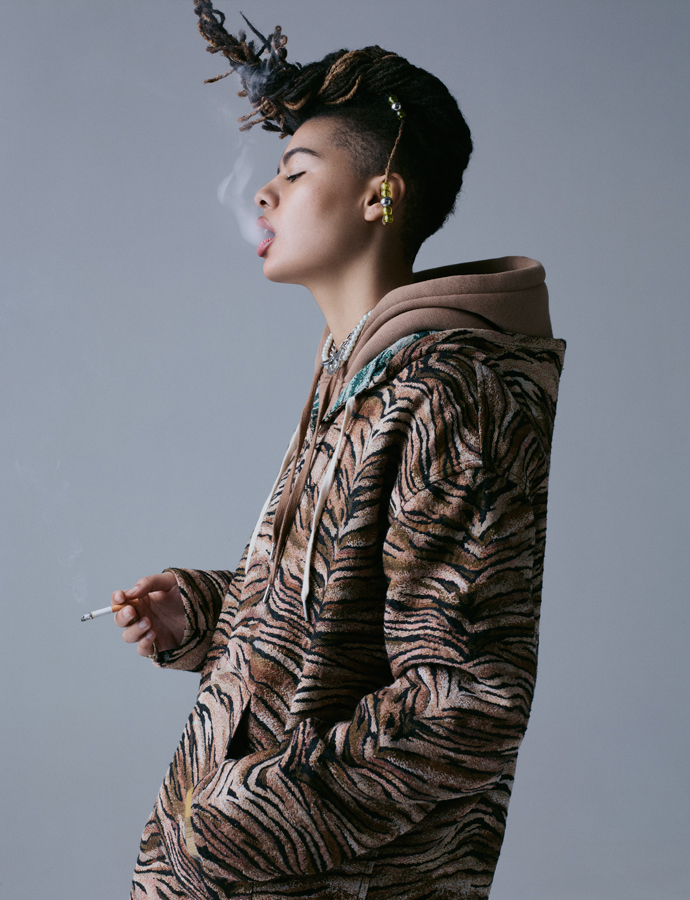
Lala &ce is in a category all her own on the French rap scene. Unlike fellow female stars Shay and Aya Nakamura, who have cultivated a raunchy media image of man-eating princesses, the 26-year-old from Lyon has chosen a very different style, sober and discreet, a far cry from the usual codes of female rap. Out with the claw-like false nails, the figure-hugging dresses, the plunging necklines, the loud make-up and the fantasy wigs, in with a brown hoody from the menswear label AMI – at whose spring/summer-2021 show she modelled –, a nonchalant gait and bleached-blonde dreadlocks attached in a topknot, revealing the shaved nape of her neck.
Lala &ce does it her way, especially where her music is concerned. She happily declares that her sound is unique and resembles no other. Since her first mixtape, Le son d’après, came out in 2019, all rap fans agree on one thing: she is a free spirit. Far from the “choppy” phrasing (as she puts it) that predominates in French hip-hop, Lala &ce has developed a sound made up of melodies and slowed-down diction, a “niche” product she would like to see become “standard.” But she cannot claim to have invented it, for “cloud rap,” as specialists call it, is a subgenre made popular by the American rapper Lil B in the early 2010s, which he describes as made up of melodies “like a castle floating on a cloud.” In the hands of Lala &ce it becomes a trippy ambiance composed of hazy loops and muttered lyrics – not so different to how she speaks in everyday life – characterized by a softness and a sensual phrasing. The result is a hymn to love and sensuality that has earned her both public and critical acclaim in France, and has seen her appear not only on popular television shows but also on highbrow radio broadcasts and specialist programmes dedicated to hip-hop.
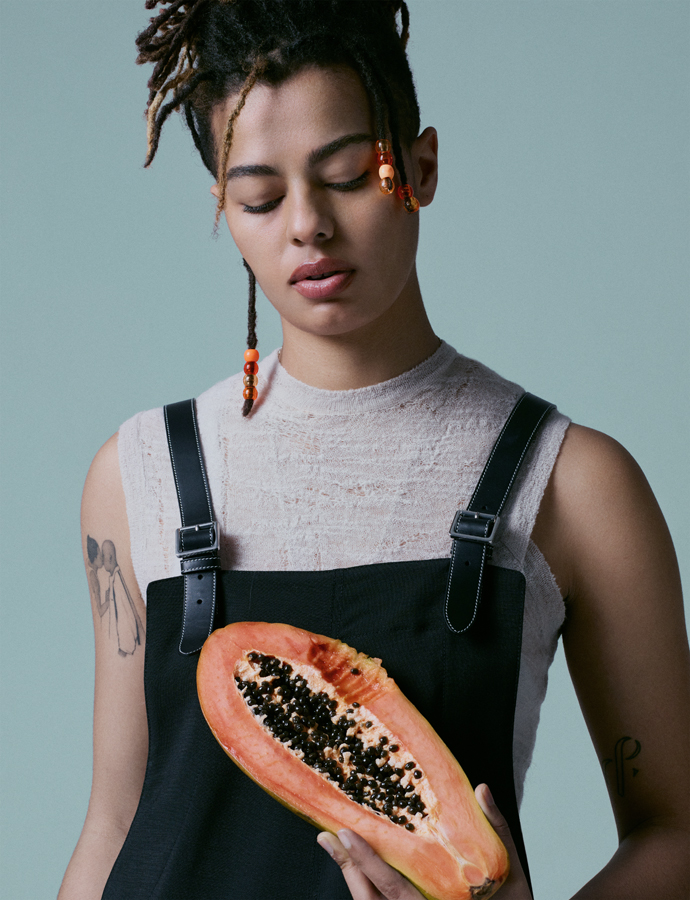
While she may have created a new form of female rap, Lala &ce’s lyrics and the way she champions her work are very similar to what her co-stars on the French scene have been doing for the past ten years: they’re fascinated by illicit substances, sex and themselves. Before achieving her current success, she belonged to the collective 667 which grouped together 20 or so rappers who were very into the symbolism that inundated the platform Soundcloud with tracks in the late 2010s. Though she was still finding her way musically at the time, she says of the period, sure of herself, “It took me a while to move on from my first sounds, but I’ve always been proud of what I’ve done. I even like the tracks I never released.”
In the same period (May 2019), Mélanie Crenshaw, as she was born, also released a single, WET (Drippin’), to announce her forthcoming mixtape Le son d’après. The accompanying video, which she directed herself, condenses her entire aesthetic. In it we see her walking with an XXL Starbucks cup in one hand, a blunt (a cigar hollowed out and stuffed with cannabis) in the other, leering at the buttocks of a curvaceous brunette and whispering that she “feels sick with drugs” and that she “cuts tracks to get them”… In song after song she shouts out her love for the female sex – which has earned her countless messages from teenage girl couples on Instagram – and for lean (a mixture of cough syrup and codeine that is very popular in the US). Her first album, Everything Tasteful, which came out on 29 January, overflows with such allusions.
Realized “all over the place” – sometimes even in hotel rooms using portable equipment –, but above all at a flat shared by friends in La Courneuve, the album is the artistic and personal fulfilment of a girl who was not in the least predestined to live her life in the limelight. Brought up in the suburbs of Lyon in a large Franco-Ivorian family, Lala – the diminutive of her grandmother’s first name, Lahoré – lost her father very suddenly to a heart attack and decided to finish her economics degree in London, afterwards planning to find work as an asset manager. “I soon realized that it wasn’t very sexy, so I stopped before my Master’s and started making music. My father never got to see this side of me, and, since success has come my way, I tell myself that the more I shine the more he’ll be able to see it from up there. I really believe it. I’m not religious, but love is strong, it goes beyond the tangible.” Her mother, who would have preferred to see her daughter study something “serious” rather than go into rap, has since changed her mind. “She wasn’t very into the rap to start with. Now she supports me a lot. She gives me ideas for my videos! She has understood that it’s what makes me happy.”
Lala &ce has inherited a shared passion from her family – tennis. As a girl she would curl up in the family sofa, surrounded by her older broth- ers and sisters, to watch every sec- ond of Roland Garros. “My mother is the one who started watching tennis. And it’s funny because she spent most of her life in Ivory Coast and they don’t have tennis over there. Watching a Grand Slam match has become a family ritual, like the World Cup for others.” But what she par- ticularly likes is that it’s an individual sport, where the athlete fights alone, just like a musician perhaps.
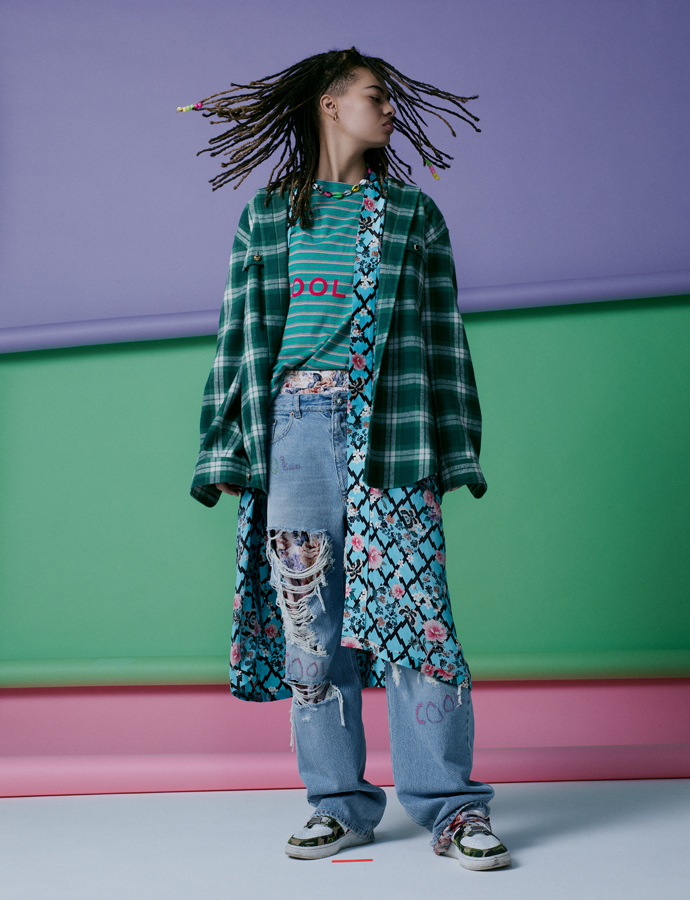
But though Lala &ce makes music in solitude, her favourite pastime is hanging out, partying and creating stuff with her mates. Yet, when Le Son d’après came out in June 2019, she announced that she was leaving the 667 collective and distanced herself from its members, some of whom have recently found themselves the subject of various scandals (accusations of “encouraging racial hatred” for Freeze Corleone and of sexual assault for Retro X, who was dropped by his label Because). In Paris, she’s found a new group of friends, which includes Bamao Yendé, Le Diouck and Rad Cartier ,and is made up of musicians, models and DJs. Lala collaborates with some of them – such as on Rad Cartier’s VT ZOOK, which came out on 30 July 2020 –, gives private concerts (which don’t always go as planned when the police turn up unexpectedly) and is even planning to found a boys’ band. For these friends, she had the idea of creating a label during the first lockdown: called &ce Recless, it has already signed a contract with an artist, and with it she coproduced – in partnership with Believe – her first album, Everything Tasteful.






